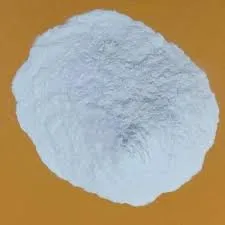
Okt . 21, 2024 08:12 Back to list
Solubility of HPMC in Various Organic Solvents for Industrial Applications
Solubility of HPMC in Organic Solvents
Hydroxypropyl Methylcellulose (HPMC) is a versatile cellulose ether widely used in various industries, including pharmaceuticals, food, and construction. Due to its unique chemical structure, HPMC has a range of solubility properties that make it a valuable ingredient for many applications. One of the significant aspects of HPMC is its solubility in organic solvents, which is essential for formulating various products.
HPMC is primarily soluble in water, forming a clear and viscous solution. However, its behavior in organic solvents is a topic of interest given the range of applications that rely on solvent-based formulations. The solubility of HPMC in organic solvents can be influenced by several factors, including the degree of substitution (DS), molecular weight, and the type of solvent used.
The degree of substitution is a critical parameter that affects the solubility characteristics of HPMC. The DS indicates the number of hydroxyl groups that have been replaced by hydroxypropyl and methoxy groups. A higher DS generally enhances the hydrophobic nature of HPMC, making it more soluble in organic solvents. Conversely, HPMC with a lower DS tends to be more hydrophilic, favoring solubility in aqueous environments.
Molecular weight also plays a vital role in the solubility of HPMC in organic solvents. Higher molecular weight HPMC tends to exhibit lower solubility due to the increased hydrodynamic volume, which can hinder the interaction with organic solvents. In contrast, lower molecular weight HPMC can dissolve more readily, making it preferable for applications requiring quicker dissolution rates. Therefore, when formulating products that include HPMC, selecting the appropriate molecular weight in relation to the intended application is crucial.
hpmc solubility in organic solvents

When considering specific organic solvents, HPMC can exhibit varying degrees of solubility. Solvents such as ethanol, acetone, and isopropanol are commonly used in formulations containing HPMC. Ethanol, a polar solvent, can effectively dissolve HPMC, particularly when combined with small amounts of water, which can help in breaking the hydrogen bonds within the polymer structure. Acetone, being a less polar solvent, may also dissolve HPMC depending on the solvent's concentration and the conditions under which the dissolution occurs.
The interaction between HPMC and organic solvents can be influenced by temperature, as increased temperatures generally improve solubility. Heat can provide the necessary energy to disrupt intermolecular forces and enhance the solvation process. This characteristic is particularly relevant in industrial applications where control over the dissolution process is paramount.
Another essential consideration is the application context of HPMC. In the pharmaceutical industry, for instance, HPMC is often used as a matrix-forming agent in drug delivery systems. Understanding its solubility in organic solvents can aid in developing controlled-release formulations, where the rate of drug release can be finely tuned by manipulating the HPMC concentration and the solvent environment.
In the construction industry, HPMC is utilized as an additive in mortars and tile adhesives, where its solubility in organic solvents can contribute to the consistency and workability of the product. The balance between solubility and viscosity is crucial, as it determines the ease of application and the final performance of the construction material.
In conclusion, the solubility of HPMC in organic solvents presents both challenges and opportunities across various industries. By understanding the factors influencing this solubility, such as degree of substitution, molecular weight, and solvent type, formulators can better design products suited to their specific applications. As research in this field continues to evolve, the potential for innovative uses of HPMC in organic solvent-based formulations is vast, paving the way for enhanced performance in numerous applications.
-
Versatile Hpmc Uses in Different Industries
NewsJun.19,2025
-
Redispersible Powder's Role in Enhancing Durability of Construction Products
NewsJun.19,2025
-
Hydroxyethyl Cellulose Applications Driving Green Industrial Processes
NewsJun.19,2025
-
Exploring Different Redispersible Polymer Powder
NewsJun.19,2025
-
Choosing the Right Mortar Bonding Agent
NewsJun.19,2025
-
Applications and Significance of China Hpmc in Modern Industries
NewsJun.19,2025







